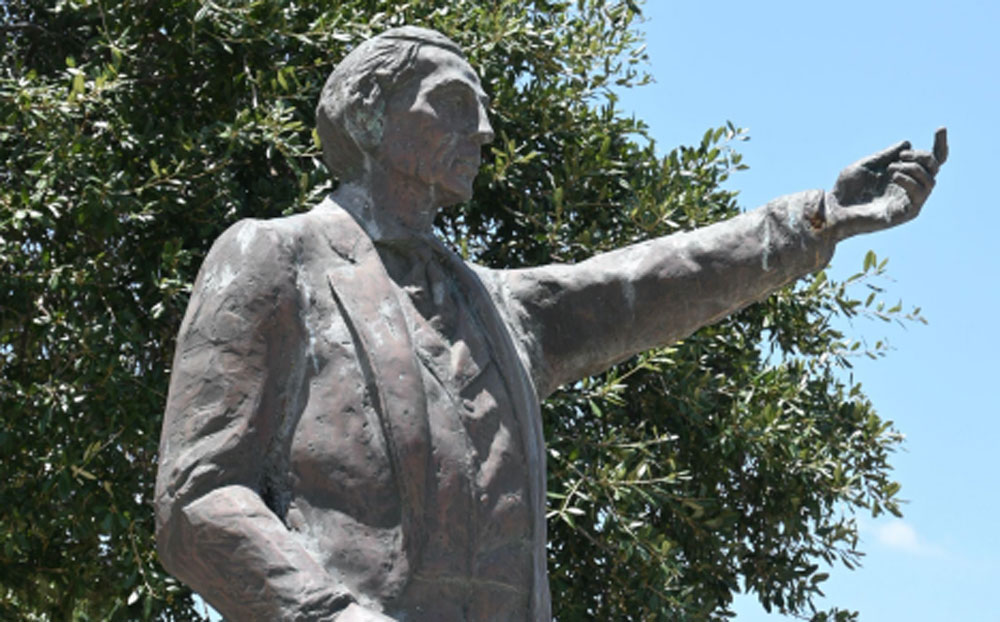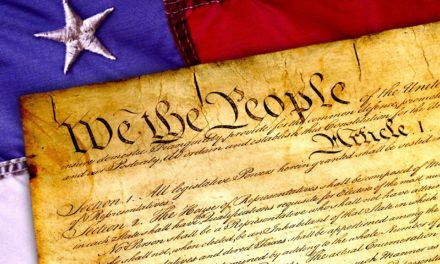Jose Antonio Navarro’s historical writings between the years 1853-1857 establish him as among the first Latino historians in the United States. His writings are important in that they offer an eyewitness account of the declining years of Spain’s 300 year colonial domination over Mexico, the loss of Mexican Texas, the rise of the Republic of Texas, and the road to statehood and later secession from the American Union.
State House Press. Austin, Tx. 1995. Collection of Ricardo Romo.
Navarro not only witnessed the most consequential events of the 19th century, he was also a major political leader in Texas during Texas’ existence as a Spanish territory, as a part of Mexico, as the Texas Republic, during American statehood, and as a member state of the Confederacy. He also remained active when Texas returned to the Union after the Civil War. He was one of two Tejano signatories of the Texas Declaration of Independence from Mexico, an influential figure in the drafting of the Texas Constitution, and a major defender of Tejano rights as a state senator.
Jose Antonio Navarro’s historical writings [1853-1857] were published 25 years ago in an edited book by David R. McDonald and Timothy M. Matovina under the title of Defending Mexican Valor in Texas. I went back to reread this small volume after the publication of Forget the Alamo: The Rise and Fall of an American Myth by Bryan Burrough, Chris Tomlinson, and Jason Sanford. The Forget the Alamo book, which mentions the early Tejano leader, triggered my reexamination of Navarro’s life and contributions to Texas history.
Jose Antonio Navarro was born in San Antonio in 1795, one of 12 children of Angel Navarro and Maria Josef Ruiz y Pena. Jose’s father, Angel, a native of the European island of Corsica, ran away from home at age 14 and worked on ships and at ports in various European cities. Angel Navarro found his way to Northern Mexico and worked several years in silver mines near Laredo. In 1777, he migrated to San Antonio where he opened a merchants’ store on the corner of Commerce and North Flores.
Several of the events mentioned in Jose Antonio Navarro’s book continue to have relevance in Tejano history today. For example, there is great value in Navarro’s account of the Tejano resistance to Spain’s colonial rule and in particular Tejano participation in one of the major Spanish colonial battles in Texas. Navarro’s account about the Battle of Medina River, a battle that occurred just outside of Bexar County, is significant to historians who continue to this day searching for the possible location of the actual battle.
Some Tejano historians have suggested that approximately 1500 Tejanos were killed in what they consider the bloodiest battle ever fought on Texas soil. But Navarro tells the story differently. Navarro wrote that the rebel forces had “fifteen hundred men including six hundred American volunteers; Arredondo [the Spanish General] had four thousand men.”
The presence of 600 American volunteers in the rebel army suggests that fewer than a thousand Tejanos could have lost their lives in that battle. A full account of how many Tejanos were killed at the Battle of Medina may never be known. Navarro writes that hundreds of Tejano rebels fled the battle scene, thus the total number of casualties is uncertain.
Navarro’s other accounts of life as a Tejano in the years before the Battle of the Alamo suggest that he led a conflicted life. Few issues and events reveal the level of complication more than the question of slavery. Spain abolished slavery in its colonies in 1818. Texas did not support a slave economy when Stephen F. Austin arrived in the early 1820s, just months after Mexico had gained its freedom from Spanish colonial rule. The authors of Forget the Alamo noted that the new Mexican Republic continued to honor the Mexican ban on the importation of slaves.
When Austin wanted to avoid the restrictions set by Mexico against the importation of slaves, Jose Navarro was there to assist him. The authors of Forget the Alamo write that in 1828 Austin came up with an idea they described as “a bit of twisted frontier genius.” The authors posed the slavery question this way: “What if, they reasoned, a slave wasn’t technically a slave? What if they
called it something else? Say an indentured servant? Or a really, really loyal servant?”
As a delegate to the Northern Mexican legislative district, Navarro proposed that new legislation for bringing “servants” was needed to help a small group of Americans
“from Ohio.” Seeing no harm, the Mexican legislators passed the bill. “Stephan F. Austin rushed the news to New Orleans, where a newspaper ran a story announcing the Texas slavery probelm had been solved.” [Burrough, et al]
The political power of Texas slaveholders, most of whom emigrated from the Southern U.S. states, grew significantly over the period 1828-1836. Although the proponents represented only 25% of the Texas population, slaveholders had enough influence to insert in the Republic of Texas Constitution of 1836 the right of Texans to own slaves.
When the Civil War broke out in 1861, most Tejanos were content to sit on the sidelines. There is evidence, however, that some Tejanos owned slaves when the Civil War began, and there is significant evidence that wealthy Tejano landowners of South Texas and their ranch vaqueros fought on the side of the Confederacy.
The son of Jose Antonio Navarro, Angel Navarro, was the first Texan to earn a law degree from Harvard, was the sole Tejano serving in the Texas Legislature when Texas left the Union to fight with the Confederacy. Angel Navarro stood with the slaveholders and signed the ordinance of secession for the Texas House in 1861. That same year Angel Navarro and his three brothers joined the Confederate Army.
According to Jose Antonio Navarro’s biographer, David McDonald, Jose Antonio owned slaves and was critical of Texas Senator Sam Houston’s plea to remain in the Union in 1861. Jose Antonio, elected twice to the state Senate, defended Texas’ decision to leave the Union.
Jose Antonio Navarro is but one of the many Tejano leaders who lived through the most difficult decades of Texas history. Although he was an early ally of Stephen F. Austin and welcomed the new Anglo settlers, in later years
Navarro’s assessment of the new Anglo settlers became more critical. He wrote of their political abuses, prevalence of land thefts and fraud, as well as a general lack of respect for his native Tejano people. Navarro’s writings are of importance to anyone interested in early Texas history.
Jose Antonio Navarro: First Tejano Historian and Defender of Mexican Valor












